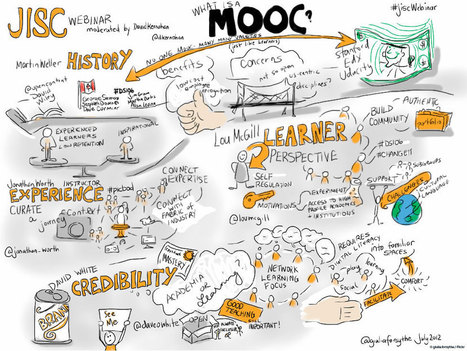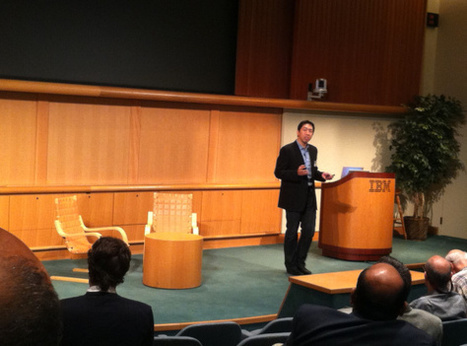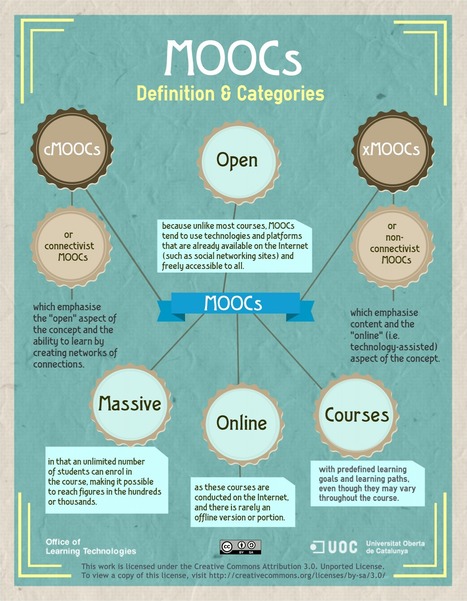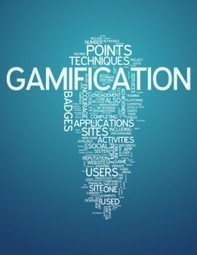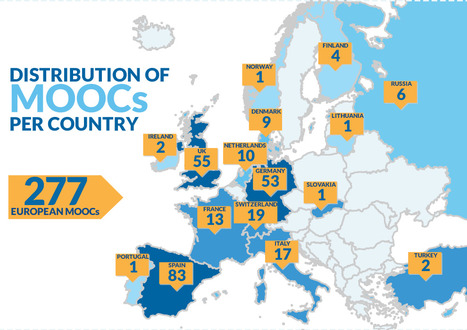Moocs required us to rethink how to create open and free courses that would engage large numbers of learners. Over the years, we’ve adapted our services in response to lessons we’ve learnt from our experiments, write Nikki Stuart and Lauren Johnston-Smith
Get Started for FREE
Sign up with Facebook Sign up with X
I don't have a Facebook or a X account
 Your new post is loading... Your new post is loading...
 Your new post is loading... Your new post is loading...

Jarrod Johnson's curator insight,
April 14, 2015 6:39 PM
These insights are pretty obvious when you read them and a lot of MOOCs I have completed have used at least one of these methods. 
elearning at eCampus ULg's curator insight,
April 21, 2015 3:15 AM
Some interesting ideas to serve variety in learning

Fiona Harvey's curator insight,
November 24, 2013 2:09 PM
Fascinating. Great to get so much 'proper' research. It will come by in waves now.

Terry Elliott's curator insight,
November 12, 2013 10:30 AM
Figuring out how the pieces that you cobble together to create a MOOC actually work. Read this and make your own decisions about whether Twitter should be part of your MOOC sandwich. 
Fiona Harvey's curator insight,
April 8, 2014 5:17 AM
Use of TWitter within MOOCS - expect more of this to come. Rather detailed and reviews two German Language MOOCs. Some ideas on how Twitter can be applied to on campus classes

SusanBat 's curator insight,
October 27, 2013 9:29 PM
A slideshare presentation by George Siemans with references to the 'MOOC Canvas model' (Alario-Hoyos et al) and 'Design and Evaluation Framework' (Grover et al) 
MIT ODL SEI's curator insight,
November 16, 2013 8:14 AM
A good summary of key words/topics relevant to MOOC development and delivery from a number fields. |
Christa Meenan's curator insight,
April 23, 2015 9:14 AM
While highlighting the obvious benefits of MOOCs for self-motivated individuals, this aricle does a nice job of also explaining the importance of face-to-face interaction with the instructor for many students to succeed. Blending MOOCs with other forms of delivery may be a way for MOOCs to move forward with lower dropout rates.

SusanBat 's curator insight,
August 28, 2014 8:06 PM
"...But one reason institutions like Stanford University and Edinburgh University embraced MOOCs was that they provided a wonderful opportunity to learn about online learning. These institutions recognised that MOOCs were a vehicle for educational research, particularly through the use of learning analytics..."

Peter B. Sloep's curator insight,
April 21, 2014 3:46 PM
The article analyses the behaviour of some 150,000 registrants for the inaugural edX course — 6.002x: Circuits and Electronics, which was offered in the spring of 2012. The analysis is based on the log files for the course, constituting an exemplary case of the application of learning analytics in action (although the authors don’t use that term at all). It consists of two parts. First, the authors take the data of all registrants into account, later to focus on those relatively few (about 10,000) who managed to earn a course certificate.
Overall, this is an interesting and useful study. I have two minor qualms with it. First, the analysis focuses on those registrants who passed the exam and earned a certificate. Although the 10,000 students who managed to do this is a sizable number, it pales with the 150,000 who registred in the first place. Second, and as far as I am concerned more importantly, no attempts is made to frame the discussion in the context of a particular learning theory. However, these qualms do not detract from the value of this study, it deserves to be widely read, particularly by people who are engaged in learning analytics (who might miss it as that term is not used). @pbsloep (see for a more extensive discussion of the article my blog post at http://pbsloep.blogspot.nl/2014/04/who-does-what-in-massive-open-online.html)

Peter B. Sloep's curator insight,
February 19, 2014 9:26 AM
Last week I reported on the EMOOCs conference, in which a significant part was reserved for reporting on various experiences with and research results on MOOCs. This July a workshop will be held focussing on data mining in MOOCs. If MOOCs are as massive as their name suggests - which of course is not always the case in actual fact - then data mining should be particularly profitable. It should give us insights in how MOOCs fare but also on how to generate the raw material on which recommenders may operate. The call for papers is still open until April 14th, so everybody who has a data mining & MOOCs axe to grind, pay attention! @pbsloep

Ebba Ossiannilsson's curator insight,
December 1, 2013 1:08 PM
George Siemens introduces a new MOOC Framework |













